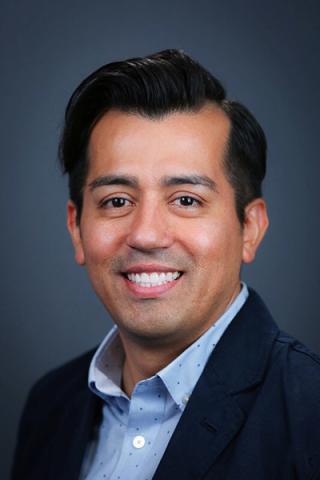Language brokers: Roberto Carlos, PhD’18, explores how immigrant children navigate the language of politics for themselves and their parents.
By Sarah Fister Gale
When Roberto Carlos started his graduate studies in political science at University of Chicago, he initially intended to study the workings of Congress. But early in his program he found that his true interest lay in political behavior in immigrant populations, particularly among Latinx communities.
Carlos had a theory that when children in immigrant families have to act as translators for their parents, it alters the way these households engage politically and how children establish their own political beliefs.
“American-born parents filter information for their children, and that establishes how children think about the world, including political issues,” he says. But when children have to filter the world for their parents by acting as translators in both mundane and important interactions, he believed that dynamic changes. Children became the “brokers of political knowledge,” helping parents understand what is happening in the local political landscape, and how it differs from politics in their home countries.
He believed these experiences alter how immigrant children learn to navigate the world. “I wanted to think deeper about population studies, and the nuances of household dynamics in these communities,” he says.
Translating the world
It wasn’t a conventional research path in the political science program, but his advisors encouraged him to explore his interests. It is one of the reasons he loved his experience at UChicago. “A lot of schools pigeon-hole grad students into a certain area of study, but my advisors let me find what I wanted to study,” he says. Then they advised him, and helped him find the resources he needed to support the research.
The challenge was proving his theory.
Carlos wanted to conduct a population study of immigrant families however that presented a number of challenges. Population studies typically go on for years, but it is difficult to engage children in these studies, and immigrant populations can be suspicious of researchers asking to interview them.
“We usually encourage grad students to stay away from population studies,” says John Brehm, professor of political science at UChicago, and Carlos’ advisor and dissertation co-chair. “But Roberto found an innovative way to make it work.”
Rather than following one group of young people and their families over many years, Carlos planned to survey immigrant children in different generations, with the theory that the children of native-born parents would have a lesser impact as brokers of political knowledge than the children of immigrants.
“It was such an interesting idea,” says Brehm. “It was incredibly insightful.”
In 2015, he secured a $20,000 Long Term Research Grant from the Division of the Social Sciences to support the project. “Without that grant I wouldn’t have been able to test my thesis or take any risks,” he says.
He admits that he made some mistakes and learned some valuable lessons while conducting the research. For example, mailing paper surveys to hundreds of San Antonio families in two languages is messy, complicated, and very expensive. “The money went quickly, but in the end it paid off.”
He gathered enough data to support his theory. And in April 2021, Carlos had an article on the research published in American Political Science Review. The piece entitled, The Politics of the Mundane, demonstrates that Latinx children of immigrants taking on adult responsibilities exhibit higher levels of political activity compared with those who do not. “These findings provide new insights into how the cycle of generational political inequality is overcome in unexpected ways and places,” Carlos writes in his introduction to the article.
He says he wouldn’t have been able to complete the study without the guidance of his advisors, and financial support of the division. “They didn’t micromanage me, but they encouraged me and helped me fill in gaps when I wasn’t sure what I was doing.”
“Roberto is an exceptional scholar,” Brehm says. He notes that Roberto’s research in Latinx communities and his experiences at UChicago and the University of Pennsylvania have made him a sought-after academic among many leading institutions. “He is on an impressive journey and I’m excited to see where it takes him.”
Bright future
Carlos graduated from UChicago in 2018. After working as a postdoctoral research fellow at the Center for the Study of Ethnicity, Race, and Immigration at the University of Pennsylvania, he took a position as an assistant professor of political science in the School of Public and International Affairs at the University of Georgia.
He now hopes to write a book on the research, and to continue exploring issues related to race, ethnicity, and politics, and how it effects the dynamic between children and parents. “In being translators, these children build skills to help them navigate many spaces in their lives,” he says. He’s eager to explore how that affects other areas of their lives.
 THE UNIVERSITY OF CHICAGO
THE UNIVERSITY OF CHICAGO


